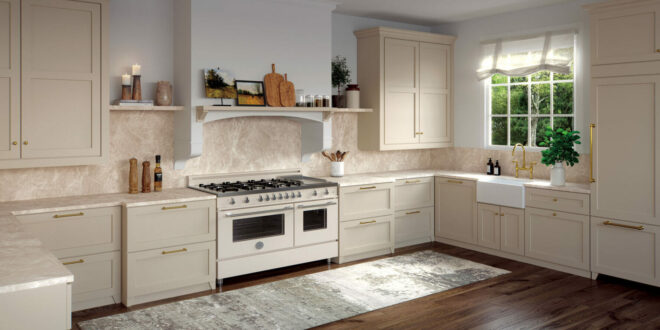Porcelain Countertops: A Kitchen Revolution
The heart of any home, the kitchen, deserves the best. For years, homeowners have wrestled with the choices for countertops: granite, quartz, marble, laminate – each with its own set of pros and cons. But now, there’s a new contender stepping into the ring, and it’s ready to knock the competition out of the park: porcelain countertops. Often referred to as the silent superstar, porcelain countertops are quickly gaining popularity, and for good reason. Their exceptional durability, sleek aesthetics, and design versatility make them a top choice for modern kitchens and beyond.
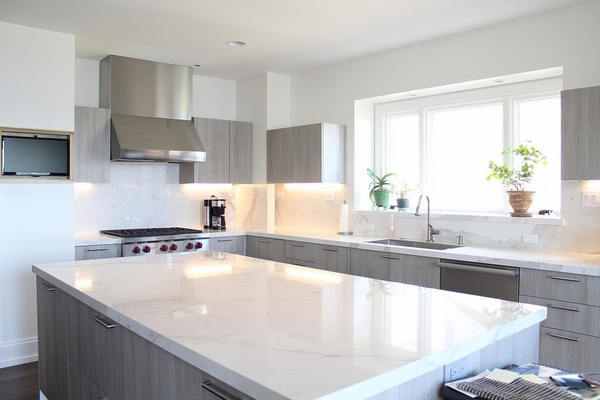
This comprehensive guide will delve deep into the world of porcelain countertops, exploring their many advantages, addressing potential drawbacks, discussing installation considerations, and providing expert tips for maintaining their beauty and longevity. Prepare to discover why porcelain countertops might just be the perfect solution for your dream kitchen.
What Makes Porcelain Countertops So Durable?
Let’s cut to the chase: durability is where porcelain truly shines. But what exactly gives this material its remarkable strength? It all comes down to the manufacturing process.
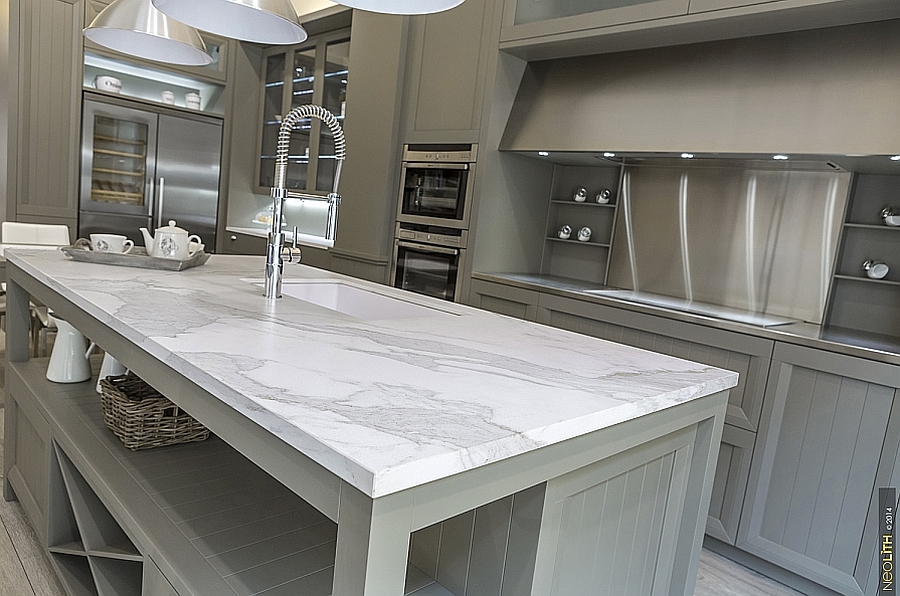
The Secret is in the Firing Process
Porcelain is created by firing a mixture of fine clay, silica, and other minerals at incredibly high temperatures – often exceeding 2,200 degrees Fahrenheit (around 1,200 degrees Celsius). This intense heat transforms the raw materials into a dense, non-porous material that is exceptionally hard and resistant to damage. Think of it like forging steel; the high heat and pressure create a substance far stronger than its individual components.
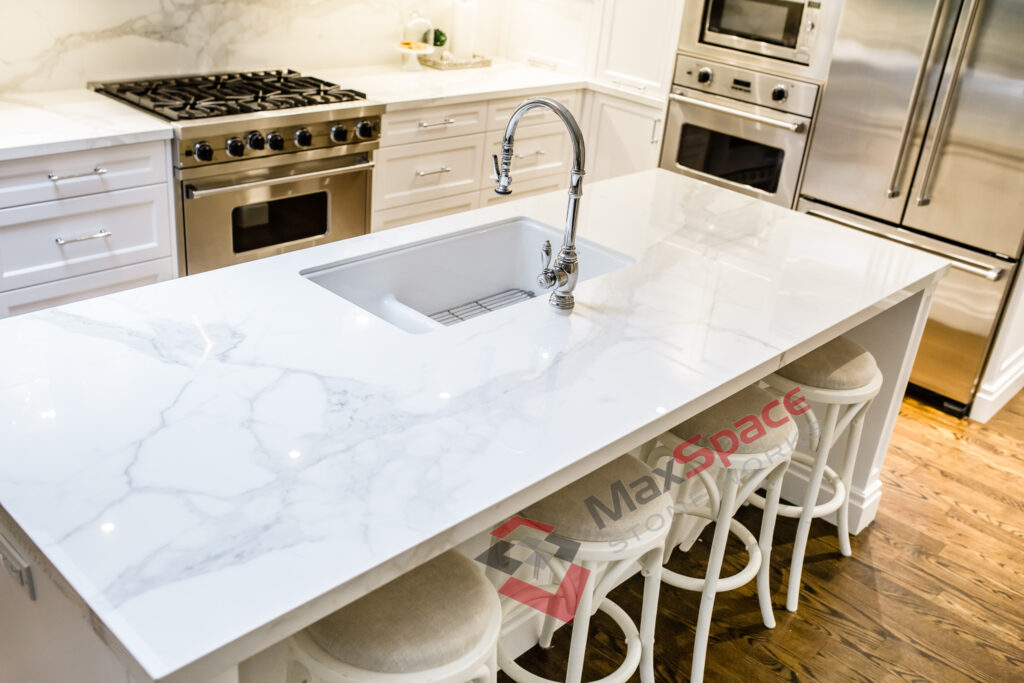
Non-Porous Nature: Stain Resistance Champion
Unlike natural stones like granite or marble, porcelain is virtually non-porous. This means that liquids, oils, and other substances cannot penetrate the surface, making it highly resistant to staining. Say goodbye to those dreaded red wine spills and greasy splatters! With porcelain, a simple wipe with a damp cloth is usually all it takes to keep your countertops looking pristine.
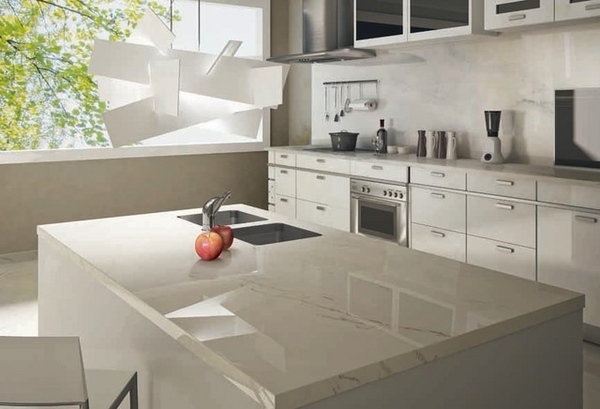
Scratch Resistance: A Daily Defense
Another major advantage of porcelain is its exceptional scratch resistance. Its hardness makes it incredibly difficult to scratch or damage with everyday kitchen tools like knives, pots, and pans. While it’s still wise to use cutting boards to protect your knives, you can rest assured that your porcelain countertops will withstand the rigors of daily use without showing unsightly scratches or marks.
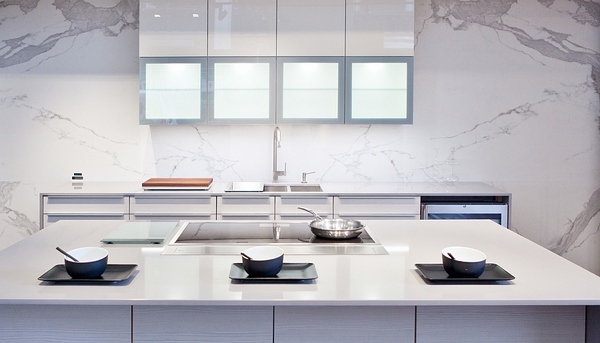
Heat Resistance: Hot Stuff!
Porcelain is also highly heat resistant, meaning you can place hot pots and pans directly on the surface without worrying about scorching or cracking. This is a significant advantage over other countertop materials like quartz or laminate, which can be easily damaged by high heat. However, it’s always recommended to use trivets or hot pads for extremely hot items to prevent thermal shock and potential damage, even though porcelain is generally very resilient.
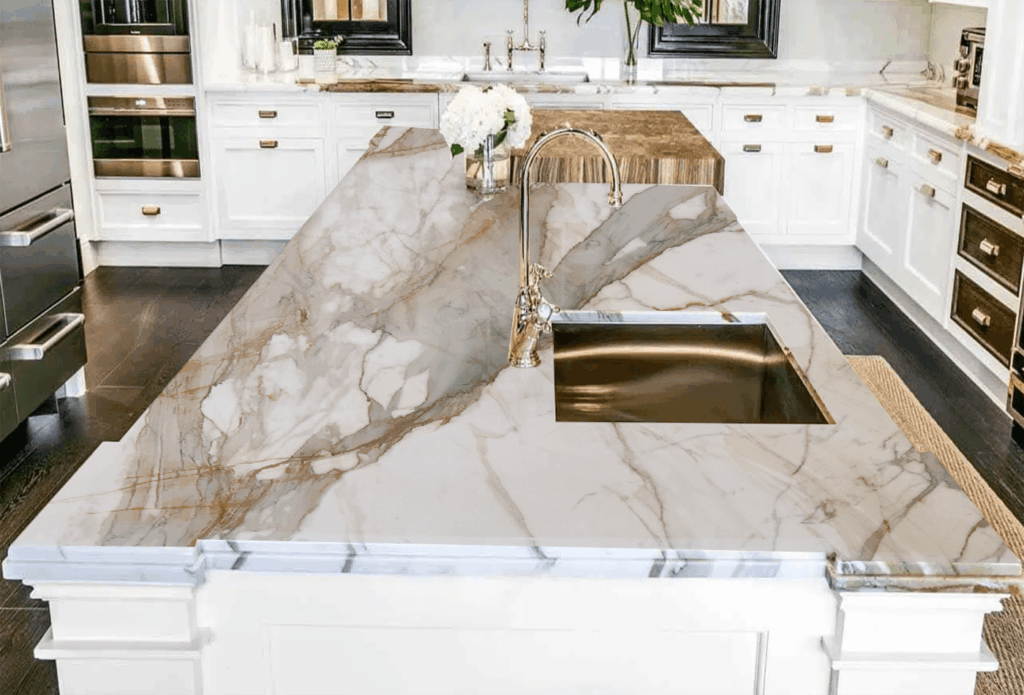
UV Resistance: Indoor and Outdoor Versatility
The UV resistance of porcelain countertops makes them an excellent choice for both indoor and outdoor applications. They won’t fade or discolor when exposed to sunlight, making them ideal for outdoor kitchens, patios, and other areas where UV exposure is a concern. This versatility opens up a world of design possibilities, allowing you to seamlessly extend your kitchen aesthetic to your outdoor living spaces.
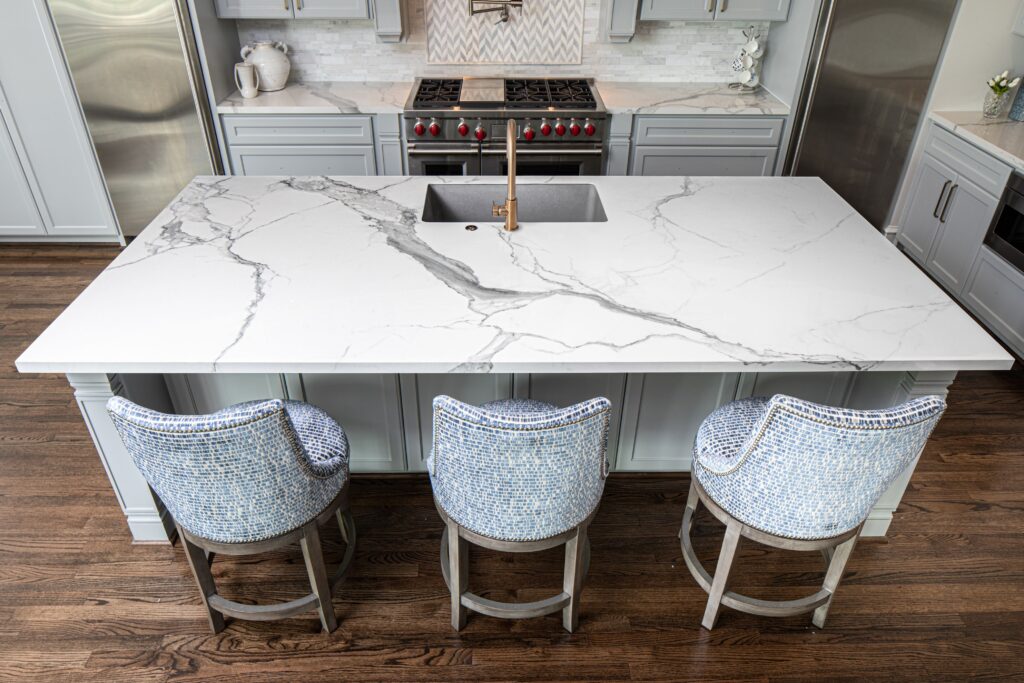
The Aesthetic Appeal of Porcelain: Design Dreams Come True
Beyond its incredible durability, porcelain also offers a wide range of aesthetic options to suit any design style. From sleek and modern to rustic and traditional, porcelain can be customized to create the perfect look for your kitchen.
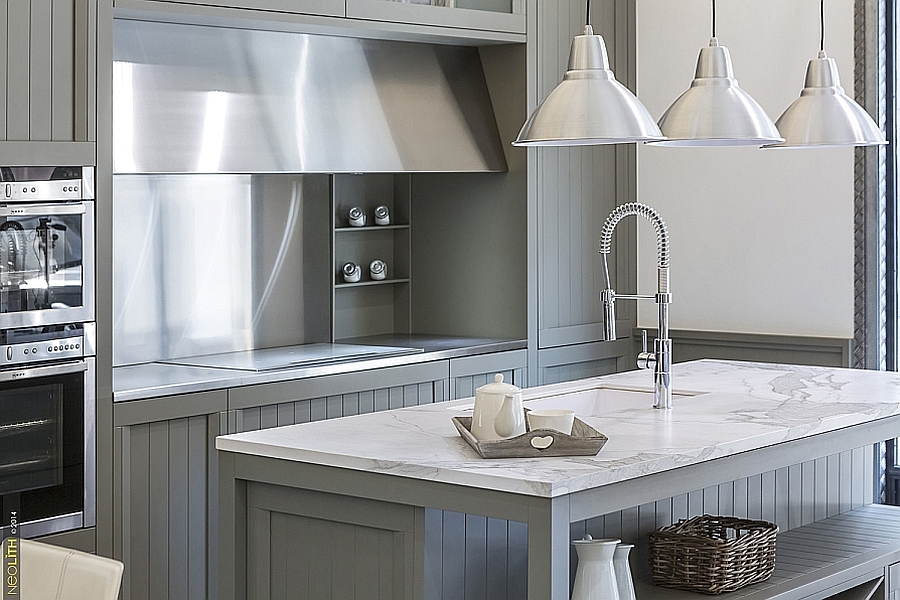
Mimicking Natural Stone: The Beauty of Granite and Marble Without the Hassle
One of the most popular trends in porcelain countertops is the ability to mimic the look of natural stone, such as granite, marble, and travertine. Thanks to advanced printing technology, porcelain can be manufactured with incredibly realistic patterns and textures that are virtually indistinguishable from the real thing. This allows you to achieve the luxurious look of natural stone without the high cost, maintenance requirements, and potential drawbacks.
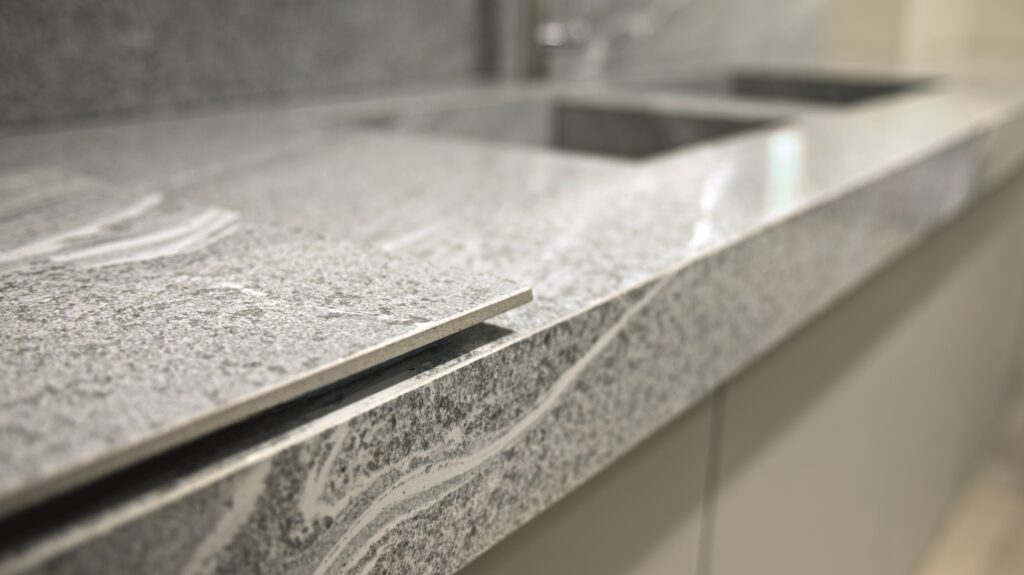
A Rainbow of Colors and Patterns: Unleash Your Creativity
In addition to mimicking natural stone, porcelain countertops are available in a vast array of colors, patterns, and textures. Whether you prefer a sleek and minimalist white countertop or a bold and colorful statement piece, you’re sure to find a porcelain option that perfectly matches your style. The possibilities are truly endless!
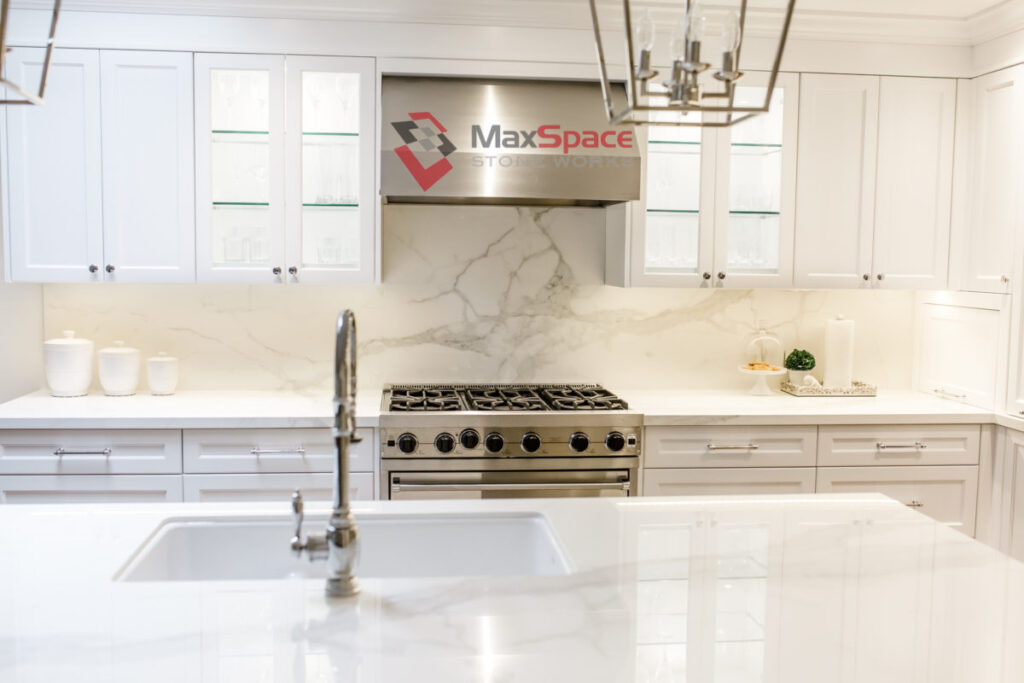
Large Format Slabs: Seamless Beauty
Porcelain countertops are often available in large format slabs, which allows for seamless installations with minimal grout lines. This creates a clean, modern look that is both aesthetically pleasing and easy to maintain. Fewer grout lines also mean less opportunity for dirt and grime to accumulate, making your countertops even more hygienic.
Textured Surfaces: Adding Depth and Dimension
For those who want to add a touch of texture and dimension to their kitchen, porcelain countertops are available in a variety of textured finishes, such as honed, matte, and embossed. These textured surfaces can add visual interest and tactile appeal to your countertops, creating a more inviting and engaging space.
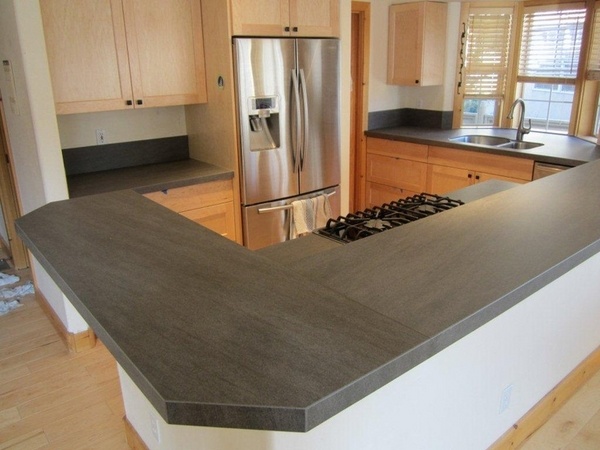
Porcelain Countertops vs. The Competition: A Head-to-Head Comparison
So, how do porcelain countertops stack up against other popular countertop materials? Let’s take a closer look at some key comparisons.
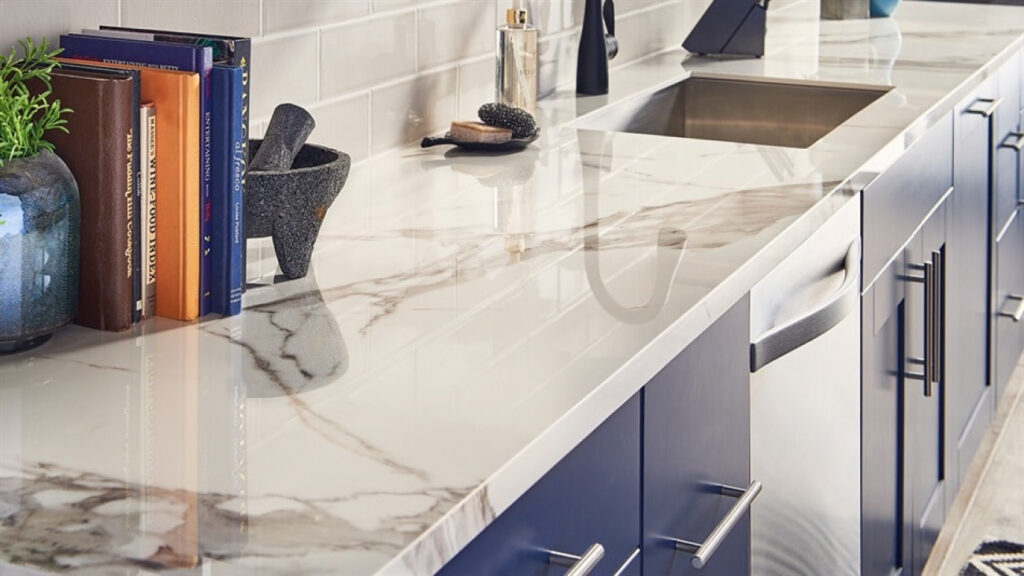
Porcelain vs. Granite: Durability and Maintenance Face-Off
Granite has long been a favorite choice for countertops due to its durability and natural beauty. However, porcelain offers several advantages over granite. As previously mentioned, porcelain is less porous than granite, making it more resistant to staining and easier to clean. Granite also requires regular sealing to prevent staining and bacterial growth, while porcelain does not. While both are heat resistant, porcelain generally has a slight edge. Granite is also very heavy, making installation more complex and expensive.
Porcelain vs. Quartz: The Stain and Heat Resistance Showdown
Quartz countertops are another popular option known for their durability and low maintenance. However, porcelain surpasses quartz in terms of stain and heat resistance. Quartz is susceptible to staining from certain substances, such as red wine and coffee, and it can be damaged by high heat. Porcelain, on the other hand, is virtually impervious to staining and can withstand extremely high temperatures. While both are relatively easy to clean, porcelain’s non-porous surface makes it even easier to maintain.
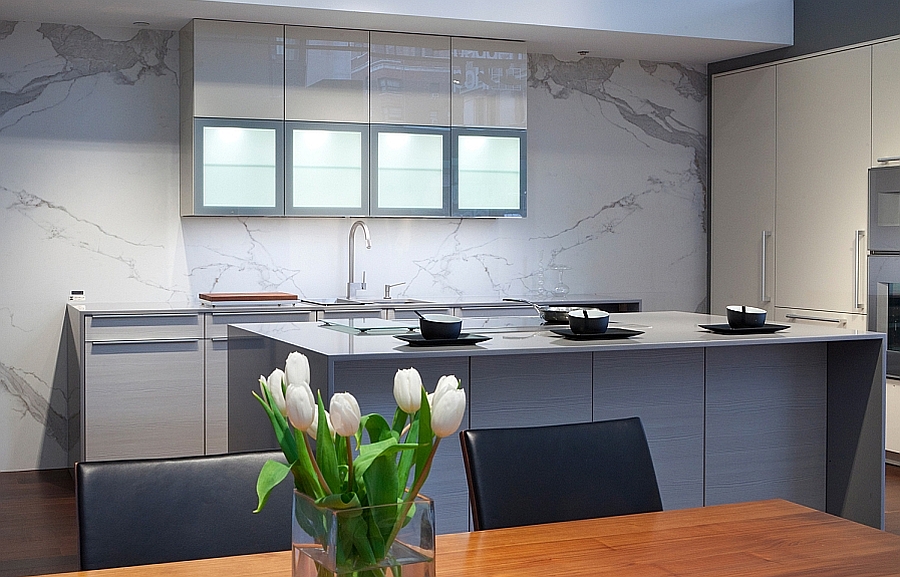
Porcelain vs. Marble: Luxury Without the Compromise
Marble is prized for its luxurious appearance, but it’s also notoriously soft and porous, making it prone to scratching, staining, and etching. Porcelain offers the look of marble without the compromises. Porcelain countertops can be manufactured with realistic marble patterns and textures, and they are far more durable and resistant to damage than natural marble. This makes porcelain an excellent choice for those who want the elegance of marble without the high maintenance requirements.
Porcelain vs. Laminate: A World of Difference
Laminate countertops are a budget-friendly option, but they are nowhere near as durable or aesthetically pleasing as porcelain. Laminate is easily scratched, stained, and damaged by heat, and it has a limited lifespan. Porcelain countertops, on the other hand, are built to last and will maintain their beauty for many years to come. While laminate may be a good choice for a temporary fix, porcelain is a long-term investment that will add value to your home.
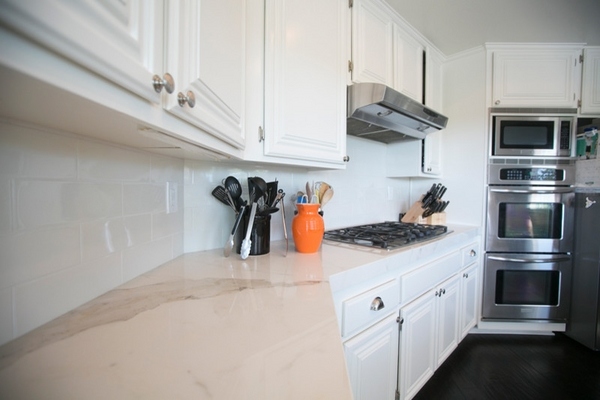
Addressing Potential Drawbacks: What You Need to Know
While porcelain countertops offer numerous advantages, it’s important to be aware of potential drawbacks before making a decision.
Cost: An Investment in Quality
Porcelain countertops tend to be more expensive than some other countertop materials, such as laminate or tile. However, it’s important to consider the long-term value and durability of porcelain. The initial investment may be higher, but you’ll save money in the long run by avoiding costly repairs and replacements. Think of it as an investment in the longevity and beauty of your kitchen.
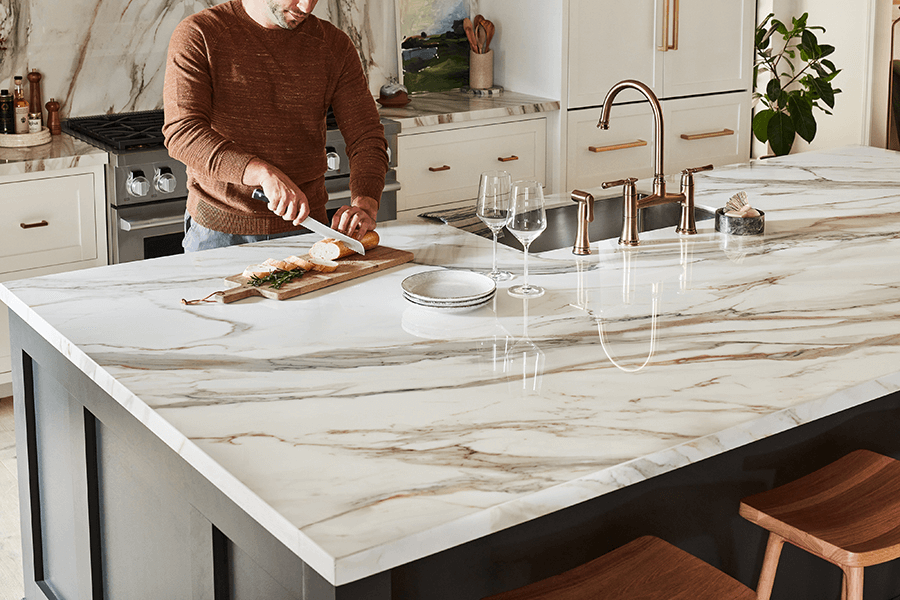
Installation: Professional Expertise Required
Porcelain countertops require professional installation due to the material’s weight and the precision needed for cutting and fitting. Improper installation can lead to cracks, chips, and other problems. It’s essential to hire an experienced installer who is familiar with working with porcelain to ensure a flawless and long-lasting result. This isn’t a DIY project for the average homeowner.
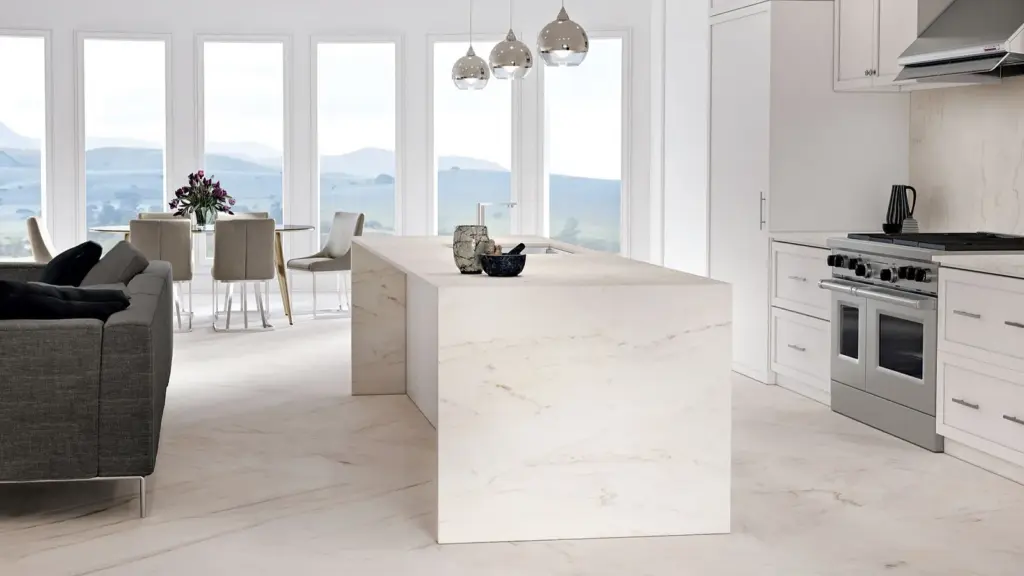
Edge Options: Limited Variety
Compared to some other countertop materials like granite or quartz, the variety of edge options available for porcelain countertops may be somewhat limited. However, there are still several attractive edge profiles to choose from, such as eased, beveled, and bullnose. Work with your installer to find an edge profile that complements your kitchen design and personal preferences.
Chipping: Potential for Damage
While porcelain is highly scratch-resistant, it can be susceptible to chipping if subjected to heavy impact. Dropping a heavy object on the countertop could potentially cause a chip. However, with proper care and caution, chipping is unlikely to be a major problem. Use common sense and avoid dropping heavy objects on your countertops to minimize the risk of damage.
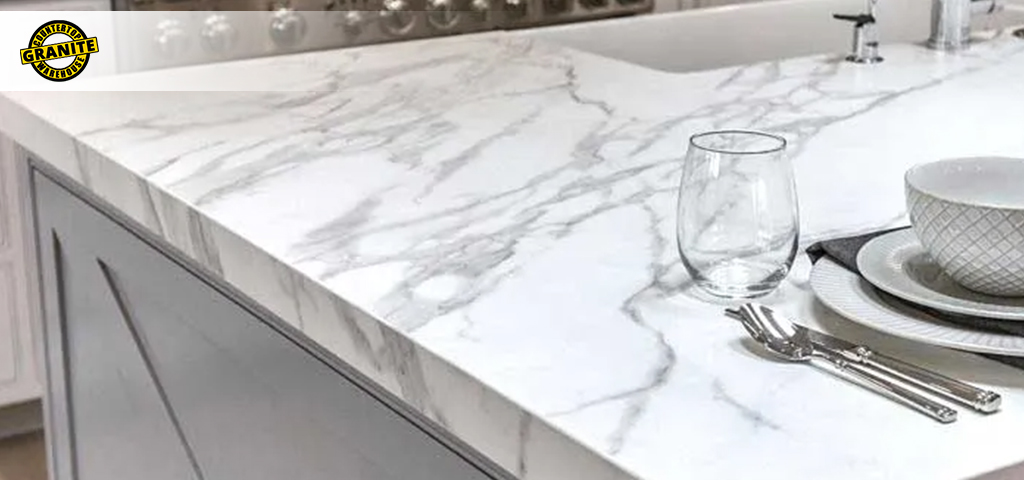
Installation Considerations: Ensuring a Perfect Fit
As mentioned earlier, professional installation is crucial for porcelain countertops. Here are some key considerations to keep in mind during the installation process.
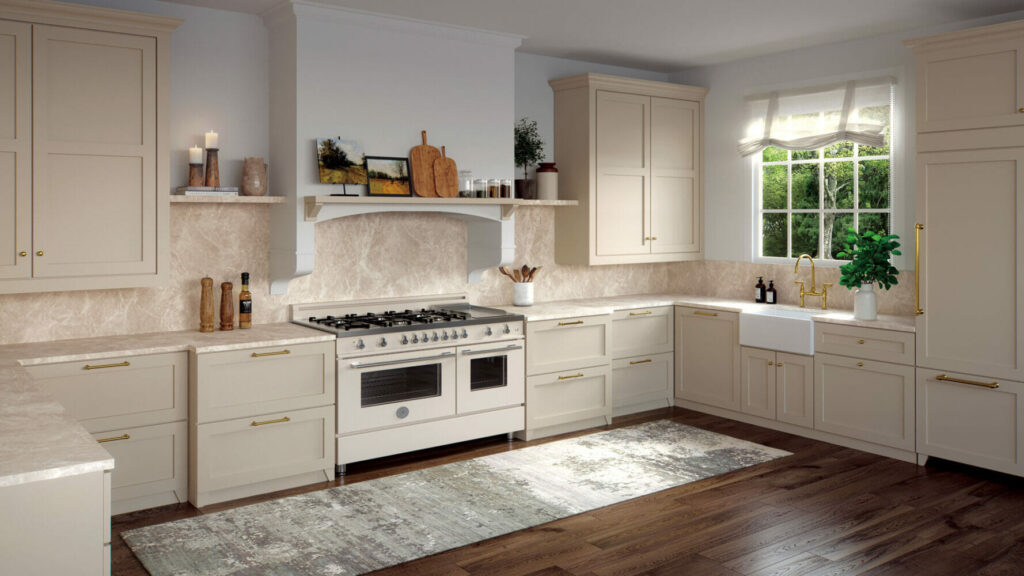
Substrate Preparation: A Solid Foundation
The substrate, or the surface beneath the countertops, must be level, stable, and properly prepared to support the weight of the porcelain slabs. Any imperfections in the substrate can lead to cracks or other problems. Your installer will ensure that the substrate is properly prepared before installing the countertops.
Seam Placement: Minimizing Visibility
If your countertops require seams, your installer will carefully plan the placement of the seams to minimize their visibility. Seams should be located in inconspicuous areas and filled with a color-matched epoxy to create a seamless look. A skilled installer will make the seams as invisible as possible.
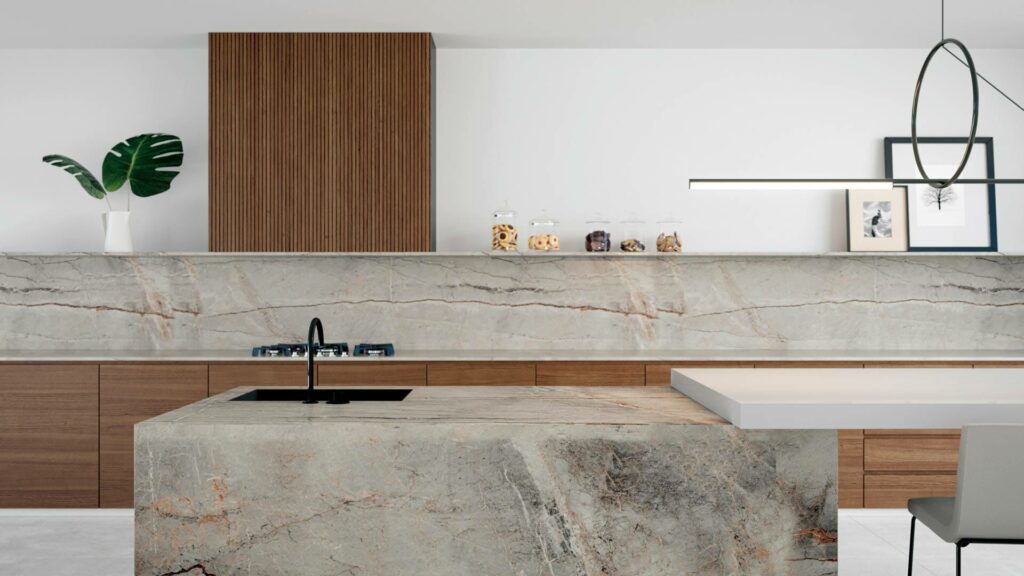
Cutting and Fabrication: Precision is Key
Porcelain countertops require specialized tools and techniques for cutting and fabrication. Your installer will use diamond-tipped blades and other specialized equipment to ensure precise cuts and smooth edges. Precision is essential for achieving a professional-looking result.
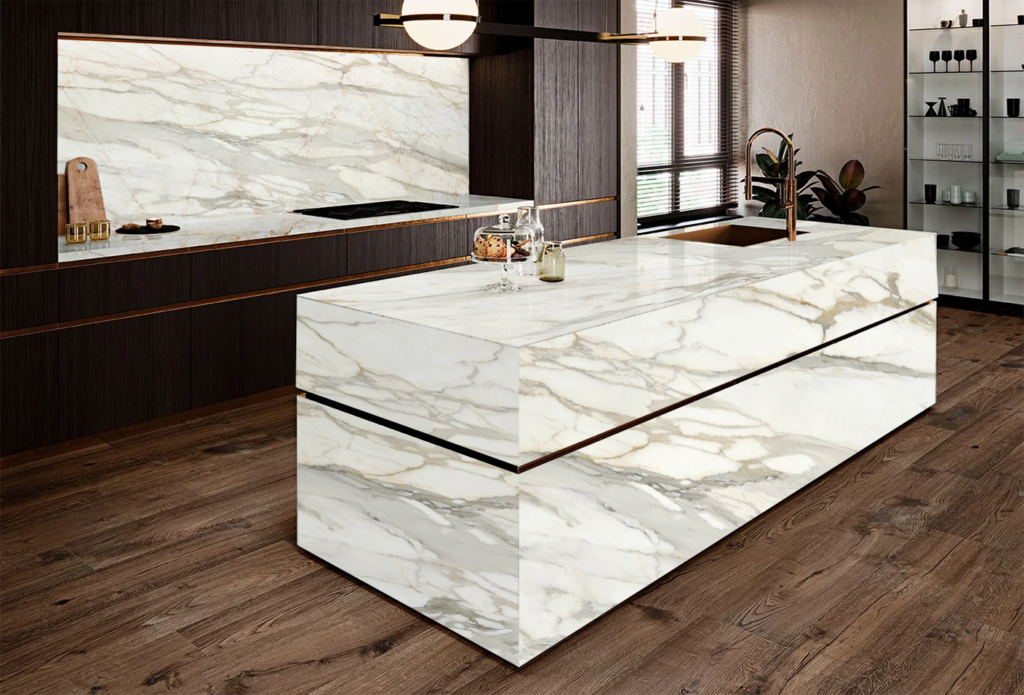
Sealing: Not Usually Necessary
Unlike natural stone countertops, porcelain countertops typically do not require sealing. The non-porous surface of porcelain makes it naturally resistant to staining and bacterial growth. However, some manufacturers may recommend sealing the grout lines to prevent staining. Consult with your installer or the manufacturer’s instructions for specific recommendations.
Maintaining Your Porcelain Countertops: Keeping Them Beautiful for Years to Come
One of the greatest benefits of porcelain countertops is their low maintenance requirements. Here are some simple tips for keeping your countertops looking their best.
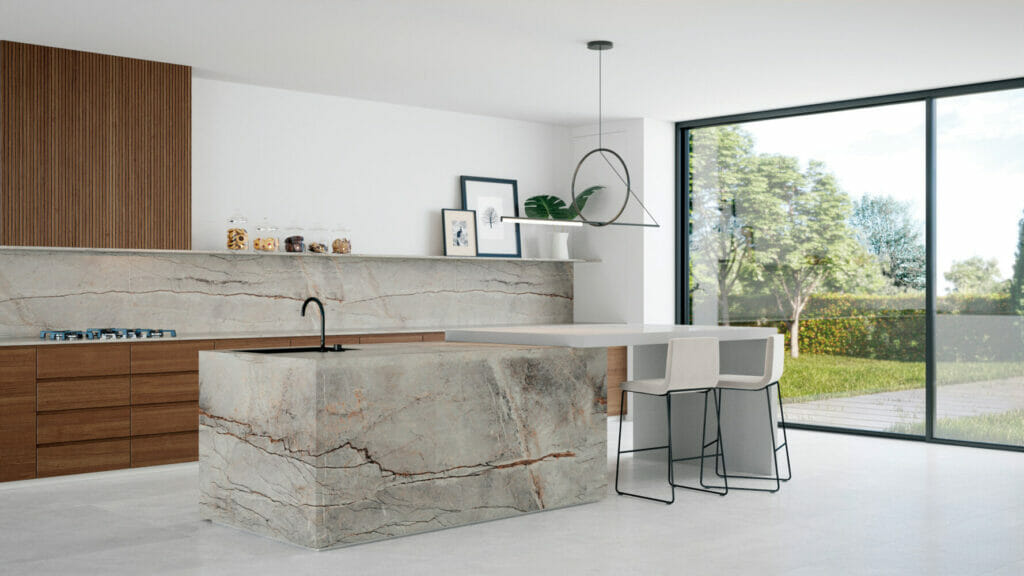
Daily Cleaning: Simple and Effective
For daily cleaning, simply wipe your countertops with a damp cloth and a mild soap or detergent. Avoid using abrasive cleaners or scouring pads, as these can scratch the surface. A simple wipe-down after each use is usually all it takes to keep your countertops clean and hygienic.
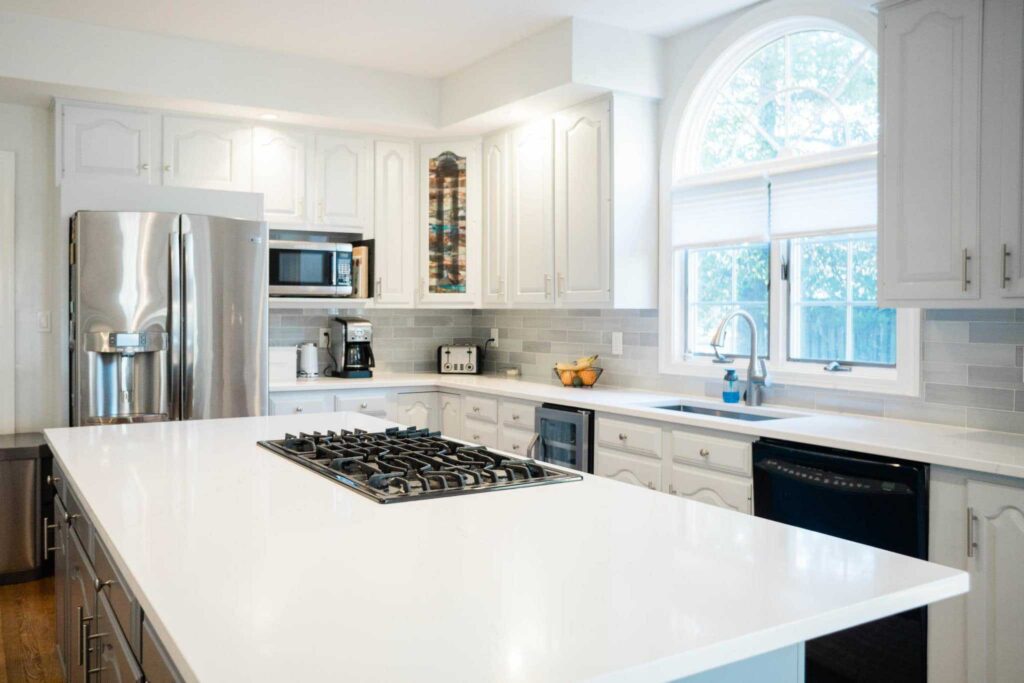
Stain Removal: Tackling Tough Spots
While porcelain is highly stain-resistant, stubborn stains may occasionally occur. To remove these stains, use a specialized countertop cleaner or a mixture of baking soda and water. Apply the cleaner to the stain, let it sit for a few minutes, and then wipe it away with a clean cloth. For particularly stubborn stains, you may need to repeat the process or consult with a professional cleaner.
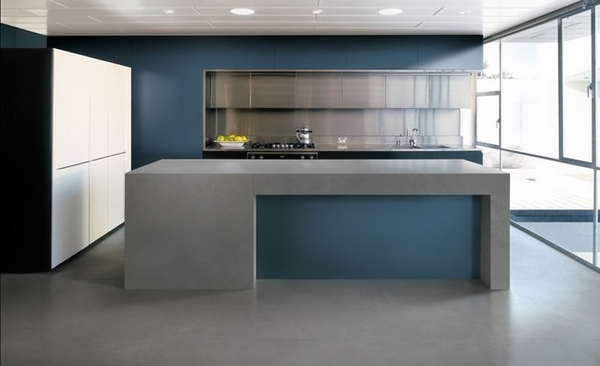
Preventative Measures: Protecting Your Investment
While porcelain is incredibly durable, taking a few preventative measures can help to prolong its lifespan and maintain its beauty. Use cutting boards to protect your knives and countertops from scratches. Use trivets or hot pads to protect your countertops from thermal shock. And avoid dropping heavy objects on your countertops to prevent chipping.
Regular Inspection: Catching Problems Early
Periodically inspect your countertops for any signs of damage, such as cracks, chips, or discoloration. Addressing these issues early can prevent them from becoming more serious problems. If you notice any damage, contact a professional repair service for assistance.
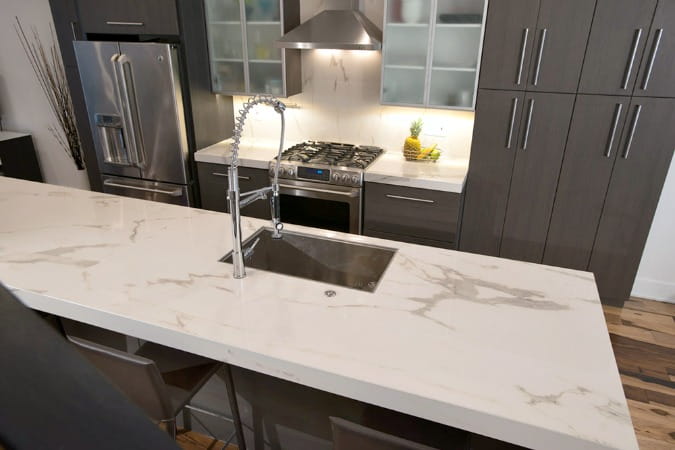
Beyond the Kitchen: Exploring Other Applications
While porcelain countertops are a popular choice for kitchens, their versatility extends beyond this space. Here are some other applications to consider:
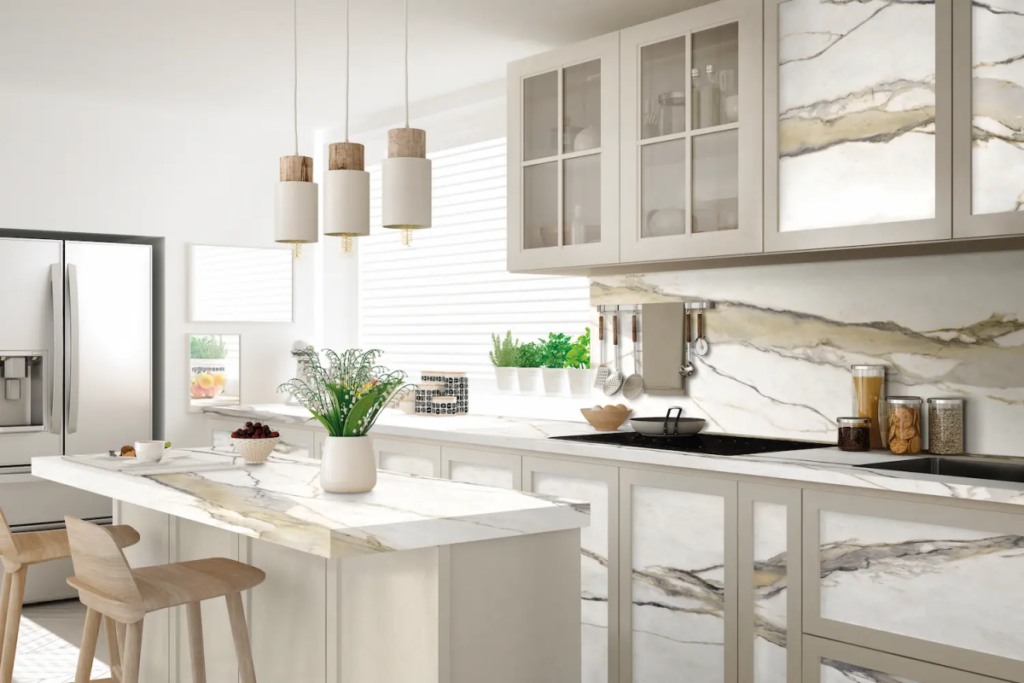
Bathroom Vanities: A Spa-Like Retreat
Porcelain countertops are an excellent choice for bathroom vanities due to their water resistance, stain resistance, and aesthetic appeal. They can create a spa-like retreat in your bathroom, providing a durable and beautiful surface for your daily routines.
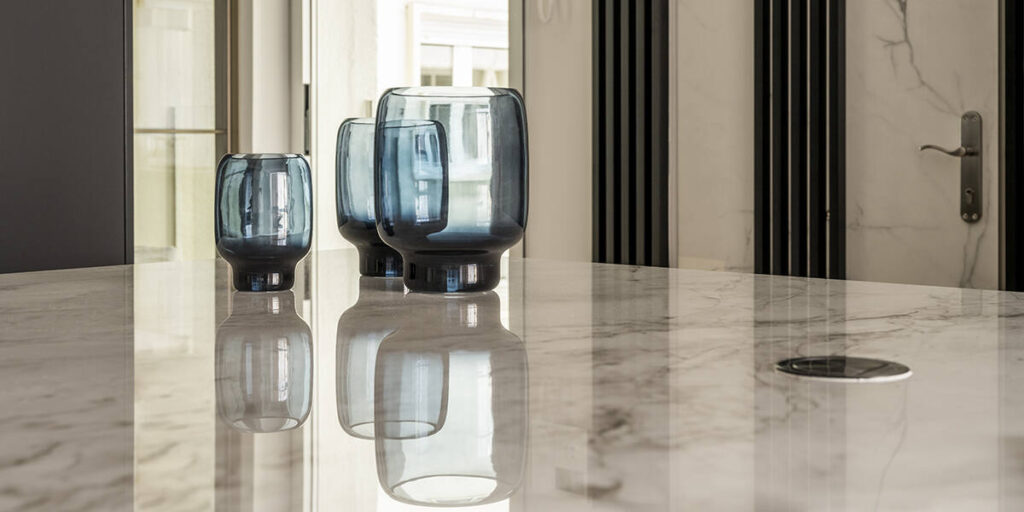
Outdoor Kitchens: Weather-Resistant Style
As mentioned earlier, porcelain’s UV resistance makes it ideal for outdoor kitchens. Create a stylish and functional outdoor cooking and entertaining space with porcelain countertops that can withstand the elements.
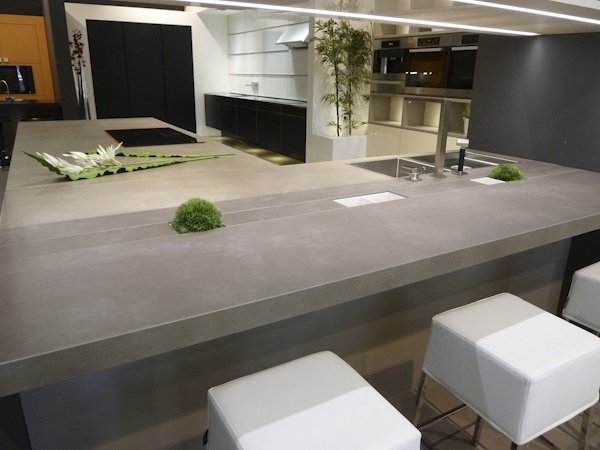
Commercial Spaces: Durable and Hygienic Solutions
Porcelain countertops are also a great choice for commercial spaces, such as restaurants, cafes, and bars. Their durability, stain resistance, and ease of cleaning make them a hygienic and practical solution for high-traffic areas.
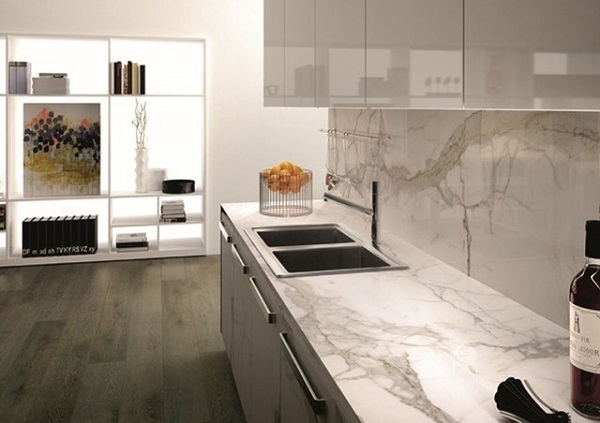
The Future of Countertops: Porcelain’s Continued Rise
Porcelain countertops are poised to continue their rise in popularity as homeowners and designers alike discover their numerous benefits. Their exceptional durability, design versatility, and low maintenance requirements make them a compelling alternative to traditional countertop materials. As technology continues to advance, we can expect to see even more innovative and exciting developments in the world of porcelain countertops.
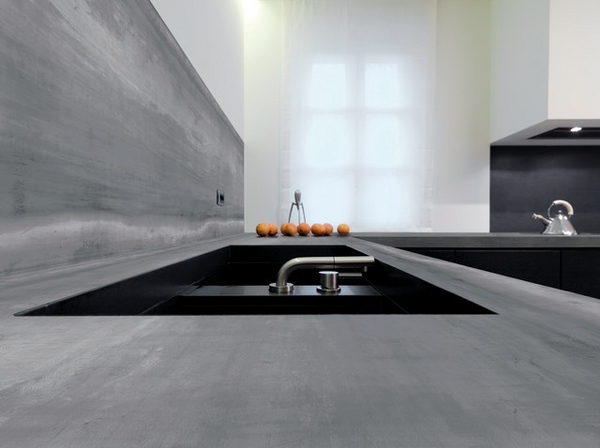
Conclusion: Is Porcelain Right for You?
Choosing the right countertop material for your kitchen or bathroom is a significant decision. Porcelain countertops offer a compelling combination of durability, aesthetics, and low maintenance that makes them a top contender for modern homes. While they may require a higher initial investment, their long-term value and lasting beauty make them a worthwhile choice. Consider your individual needs, budget, and design preferences when making your decision. If you’re looking for a durable, beautiful, and easy-to-maintain countertop solution, porcelain is definitely worth considering.
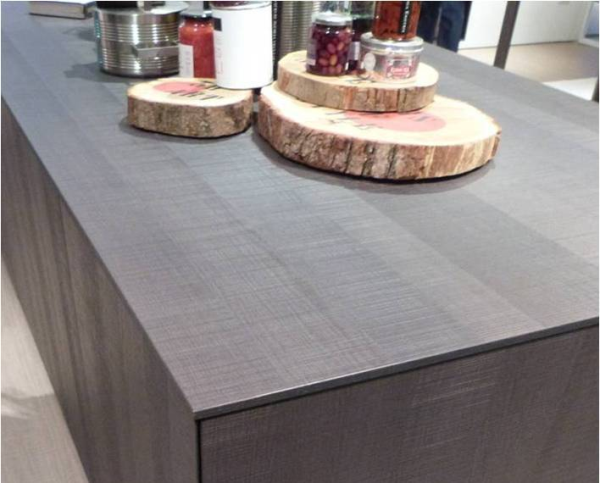
By understanding the nuances of porcelain, from its manufacturing process to its maintenance requirements, you can make an informed decision that will enhance your home and bring years of enjoyment. So, embrace the revolution and discover the beauty and practicality of porcelain countertops!
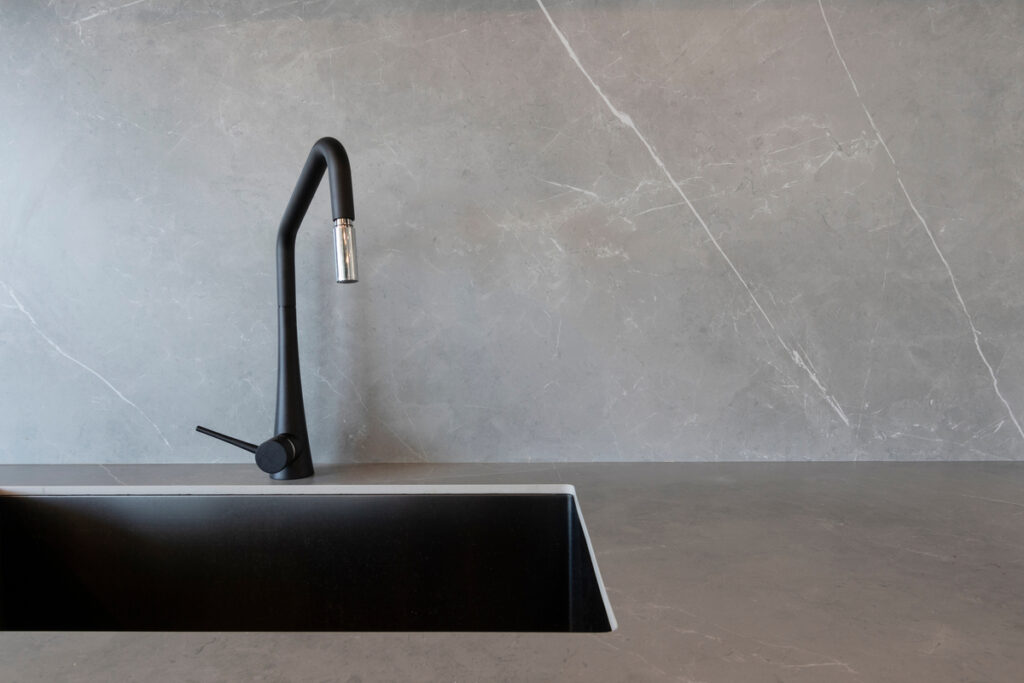
 Nimila
Nimila
